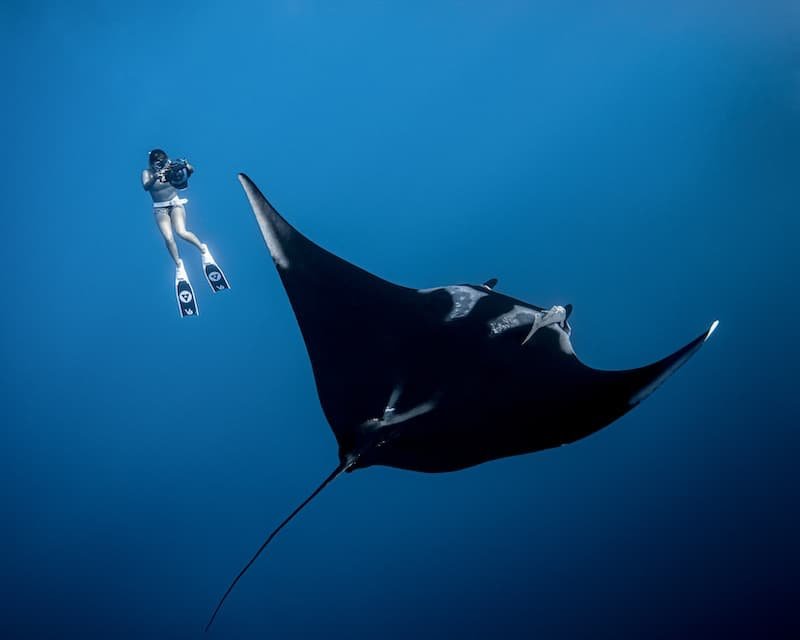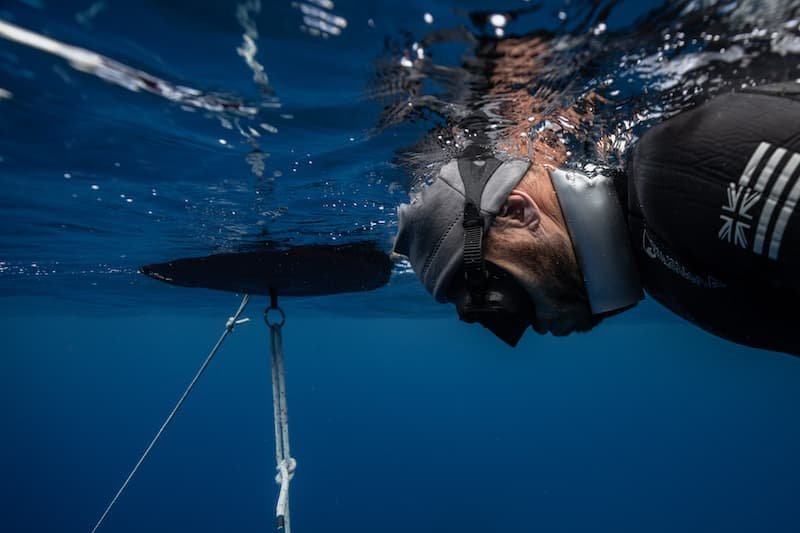
 Olivia Møller
Freediver - Activist - Explorer
Olivia Møller
Freediver - Activist - Explorer

 Olivia Møller
Freediver - Activist - Explorer
Olivia Møller
Freediver - Activist - Explorer
In the vast blue expanse of our oceans, there exists a sport that beckons adventurers to plunge into its depths with nothing but a lungful of air. Freediving, the art of diving underwater without the aid of breathing apparatus, has captivated enthusiasts for centuries with its blend of physical prowess and serene exploration. Beyond its allure as a recreational activity, freediving offers profound health benefits that resonate far beyond the ocean's surface. Let's dive into three compelling reasons why this ancient practice could enhance your well-being.
At its core, freediving serves as an exceptional aerobic exercise, presenting a distinctive challenge to the body's cardiovascular system. As divers descend into greater depths, a remarkable physiological response known as the mammalian dive reflex comes into play, naturally reducing their heart rate. This reflex is pivotal as it optimizes oxygen conservation and redirects blood flow to essential organs, thereby significantly enhancing overall cardiovascular efficiency. Scientific research underscores the profound benefits of regular freediving, demonstrating reductions in resting heart rates, enhancements in circulation, and improvements in the heart's pumping efficiency. These adaptations not only bolster divers' performance underwater but also yield enduring benefits for heart health in everyday life, highlighting freediving as a comprehensive cardiovascular workout with long-lasting physiological rewards.

Beyond its physical demands, freediving offers a profound mental escape from the relentless stresses of modern life. The rhythmic breathing techniques and mindful presence required underwater foster a profound state of deep relaxation and mental clarity. As divers submerge themselves in the serene underwater realm, they encounter a meditative calm that not only diminishes stress levels but also cultivates a heightened sense of well-being. This meditative facet of freediving is akin to mindfulness practices and has been scientifically linked to reductions in cortisol, the stress hormone, thereby promoting a more harmonious and balanced mental state. Freediving thus emerges not just as a sport of physical endurance, but as a transformative experience that nourishes both body and mind, offering respite from the tumult of daily life and fostering mental resilience.

Enhanced Respiratory Function in freediving stands as a remarkable benefit, showcasing its transformative impact on how the body processes oxygen and carbon dioxide under pressure. Through dedicated training, divers refine their ability to maximize lung capacity and operational efficiency, facilitating a substantial improvement in respiratory performance. Engaging in regular sessions of breath-holding exercises and adopting controlled breathing techniques not only fortifies respiratory muscles but also sharpens the body's capacity to utilize oxygen more efficiently. This enhanced respiratory capability not only bolsters performance during dives but also translates into heightened endurance and stamina in everyday activities. Freediving, thus, emerges not just as a sport but as a comprehensive regimen that cultivates respiratory prowess, contributing significantly to overall physical resilience and well-being.

From cardiovascular fitness and mental clarity to enhanced respiratory function, the benefits of freediving extend far beyond the thrill of underwater exploration. As enthusiasts continue to delve into the depths, they uncover not just the mysteries of the ocean but also the secrets to a healthier, more balanced life. So, whether you're drawn to the tranquility beneath the waves or the exhilaration of pushing physical limits, consider embracing freediving as a pathway to unlocking these remarkable health benefits. As the waters beckon, embark on a journey that transcends the ordinary—a journey that explores both the depths of the ocean and the depths of your own potential.